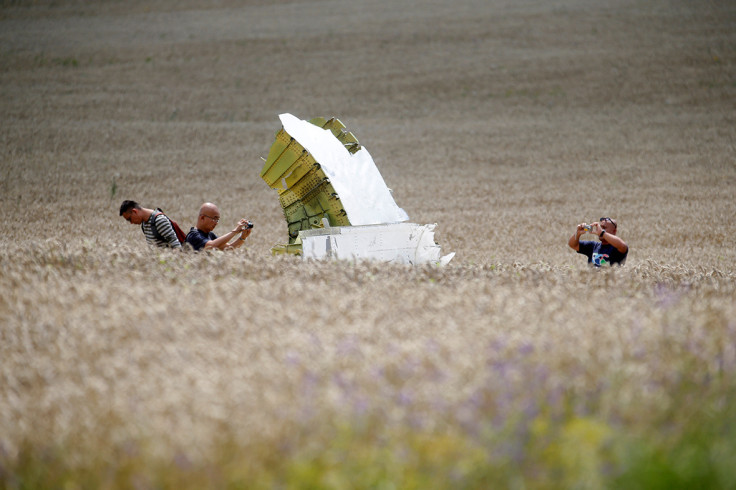Ukraine Donetsk rebels deny involvement in downing of MH17 flight
All 298 people on board of the 777 Boeing flying from Amsterdam to Kuala Lumpur died in July 2014.
Pro-Russian rebels in Ukraine have rejected claims they were behind the downing of Malaysia Airline flight MH17 in July 2014. On 28 September, the Joint Investigation Team (JIT) looking into the incident claimed the Buk missile, which hit the plane in eastern Ukraine, was from Russia.
The plane crashed in the pro-Russia rebel-held city of Donetsk. All 298 people on board of the 777 Boeing flying from Amsterdam to Kuala Lumpur died.
Local rebels rejected the probe findings, according to news agency AFP. Russia already denied its involvement in the incident, claiming the findings were "extremely political".
"Based on the criminal investigation, we have concluded that flight MH17 was downed by a Buk missile of the series 9M83 that came from the territory of the Russian Federation," Dutch chief investigator Wilbert Paulissen said in a news conference on 28 September. He added the missile launcher was later taken back to Russia.
The report came months after investigators found a part of the Buk missile at the Ukraine crash site.
A 2015 preliminary report by the Dutch Safety Board (DSB) into the crash had already ruled out technical faults or actions by the crew. It said the plane broke up in the air due to "a large number of high-energy objects" that penetrated it from the outside.
Families of victims have asked Russian President Vladimir Putin £1bn in compensation for his failure to support the investigation.
#BREAKING Ukraine rebels deny downing Flight MH17, reject probe findings
— AFP news agency (@AFP) September 28, 2016

© Copyright IBTimes 2025. All rights reserved.






















